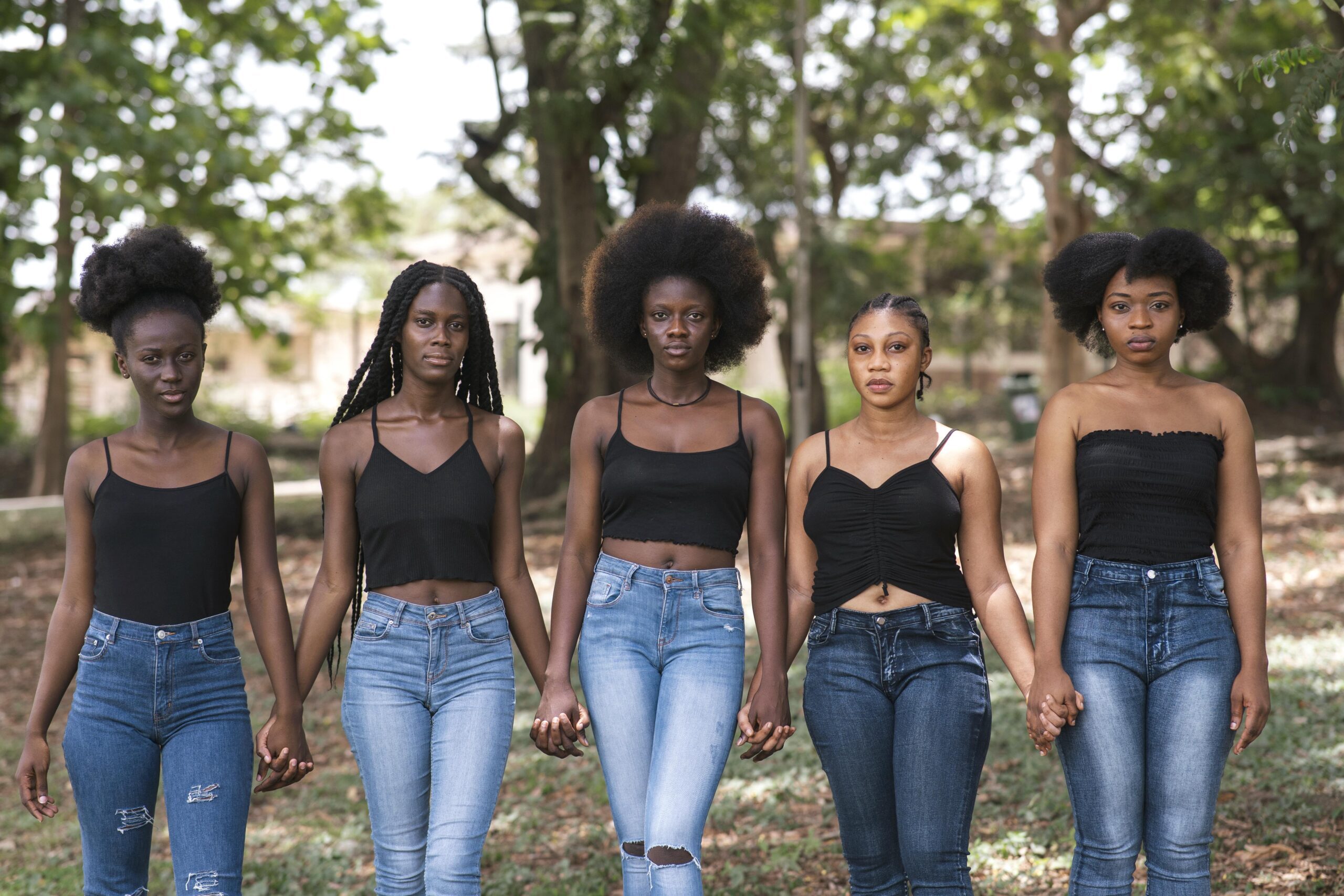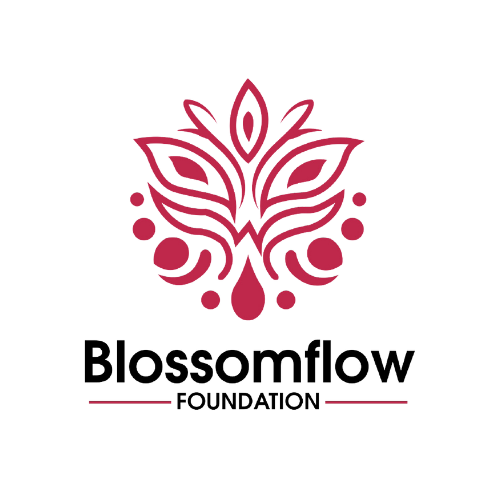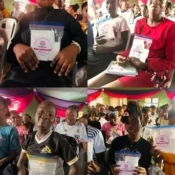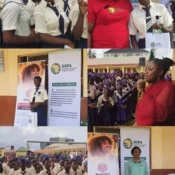
Empowering Women: Creating Safe Spaces to End Gender-Based Violence
Gender Based violence (GBV) remains one of the most pressing human rights violations worldwide. In Nigeria, as in many parts of the world, millions of women and girls face physical, emotional, and sexual violence in their homes, schools, workplaces, and communities. This violence not only threatens their safety but also limits their ability to thrive in education, employment, and personal development.
To break this cycle, we must create safe spaces where women and girls can heal, speak out, and access the support they need. This blog explores the impact of gender-based violence, the barriers survivors face, and innovative solutions to ensure women and girls live free from fear.
Understanding Gender-Based Violence in Nigeria
Gender-based violence includes physical, sexual, psychological, and economic harm directed at someone because of their gender. It occurs in both public and private spaces, often fueled by deep-rooted societal norms, economic inequalities, and weak legal protections.
Shocking Facts About GBV in Nigeria
1 in 3 women in Nigeria has experienced physical or sexual violence in her lifetime (UN Women).
70% of women in rural communities have been victims of intimate partner violence (World Bank).
Less than 10% of cases of sexual assault are reported due to stigma and fear of retaliation.
How Gender-Based Violence Affects Women and Girls
-
Impact on Mental and Physical Health
Women and girls who experience GBV suffer from trauma, depression, anxiety, and post-traumatic stress disorder (PTSD). Physical abuse can result in chronic pain, injuries, and even fatality.
Example: Survivors of sexual violence in Nigeria often face rejection from their families, leading to emotional distress and social isolation.
-
Educational and Career Limitations
Many girls drop out of school due to sexual harassment, early marriages, and domestic violence. Women facing workplace harassment may leave jobs, limiting their financial independence.
Example: In Northern Nigeria, over 40% of girls are married before age 18, ending their education early.
-
Economic Dependence and Poverty
Financial abuse is a form of GBV where women are denied access to money, property, or job opportunities, keeping them financially dependent on their abusers.
Example: Many women in abusive relationships stay because they lack financial resources to leave and support themselves.
Barriers to Ending Gender-Based Violence
- Cultural Norms and Victim-Blaming: Many communities justify abuse, blaming victims rather than holding perpetrators accountable.
- Weak Legal Protections: Even though Nigeria has laws like the Violence Against Persons Prohibition (VAPP) Act, enforcement remains weak.
- Fear of Retaliation: Women fear reporting abuse due to shame, threats, and lack of support from law enforcement.
- Limited Safe Spaces for Survivors: Many Nigerian states lack shelters and crisis centers for GBV victims.
Creating Safe Spaces for Women and Girls
Safe spaces provide a secure and supportive environment where survivors can heal, share their experiences, and access essential resources. Here’s how we can create and strengthen these spaces:
-
Building Shelters and Crisis Centers
Nigeria needs more safe houses where GBV survivors can receive temporary accommodation, counseling, and legal support.
Example: The Mirabel Centre in Lagos is Nigeria’s first sexual assault referral center, offering free medical and legal assistance to survivors.
What Can Be Done?
- Government and NGOs should fund more shelters for abused women and girls.
- Community leaders should partner with women’s rights organizations to provide emergency housing.
-
Providing Mental Health and Counseling Services
Emotional and psychological healing is crucial for survivors of GBV. Access to therapists, support groups, and crisis hotlines can help them recover from trauma.
Example: Stand to End Rape (STER) in Nigeria provides free therapy and support groups for rape survivors.
What Can Be Done?
- Schools, workplaces, and religious institutions should have trained counselors for victims of abuse.
- More hotlines and online chat support should be available for women who need immediate help.
-
Strengthening Legal Protection and Law Enforcement
Survivors must have easy access to justice, and perpetrators must be held accountable through strict legal action.
Example: The VAPP Act (2015) criminalizes domestic violence, but many Nigerian states are yet to implement it.
What Can Be Done?
- Ensure that every Nigerian state adopts and enforces the VAPP Act.
- Train police officers and judicial staff on handling GBV cases sensitively.
-
Economic Empowerment for Survivors
Financial independence can help survivors break free from abusive situations. Women should have access to job training, business funding, and micro-loans.
Example: The Women at Risk International Foundation (WARIF) in Nigeria provides survivors with skills training and job placement opportunities.
What Can Be Done?
- Employers should create safe workplaces with strict anti-harassment policies.
- NGOs should offer vocational training and financial aid to GBV survivors.
-
Changing Cultural Attitudes Through Education
Ending GBV requires changing harmful beliefs and behaviors in communities. Educating men and boys about gender equality and respect is critical.
Example: The HeForShe movement encourages Nigerian men to speak out against GBV and advocate for women’s rights.
What Can Be Done?
- Schools should teach gender equality and anti-violence education from an early age.
- Community leaders should publicly condemn GBV and promote women’s rights.
How You Can Help Fight Gender-Based Violence
- Support organizations that provide shelter, counseling, and legal aid to survivors.
- Report cases of abuse and stand up for victims in your community.
- Speak out against harmful gender norms that justify violence.
- Donate sanitary products to shelters and safe houses—many survivors struggle to access menstrual products.
Conclusion
A Nigeria Free from Gender-Based Violence
Every woman and girl deserves to feel safe, valued, and empowered. Combating gender-based violence requires a collective effort—from individuals, communities, governments, and organizations.
By building safe spaces, strengthening laws, empowering survivors, and shifting cultural attitudes, we can create a Nigeria where no woman or girl lives in fear.
What are your thoughts on creating safe spaces for women and girls in Nigeria? Let’s discuss in the comments!
For more information, visit our Blog Section.
All Categories
Recent Posts
Why SDG 4 Cannot Be Achieved Without Ending Period Poverty
Tags
Give them a helping hand
Every donation fuels our mission to combat period poverty. Your generosity brings us closer to menstrual equity.
+234-909-482-1642
inquiries@blossomflow.org




